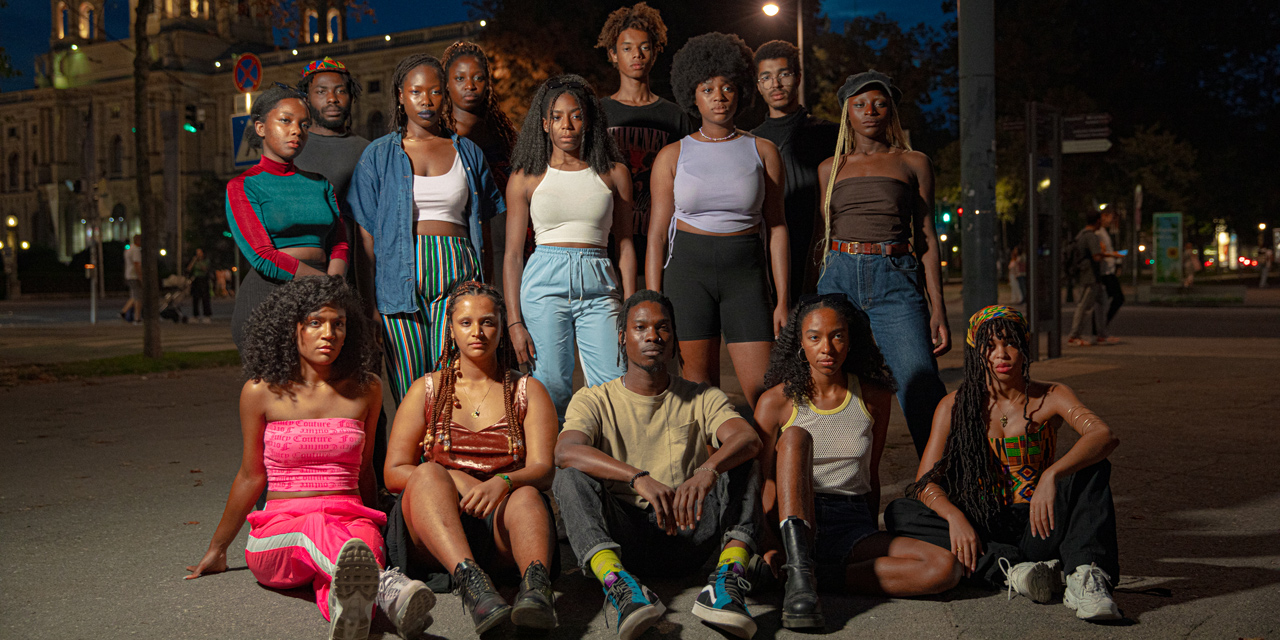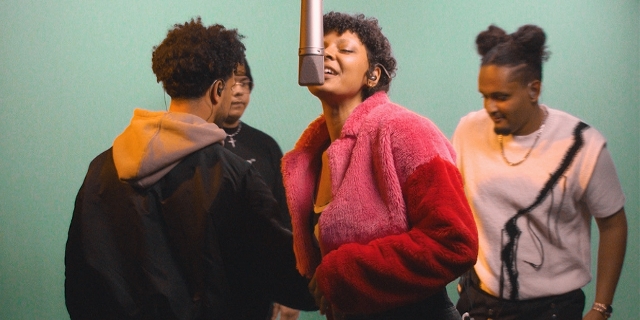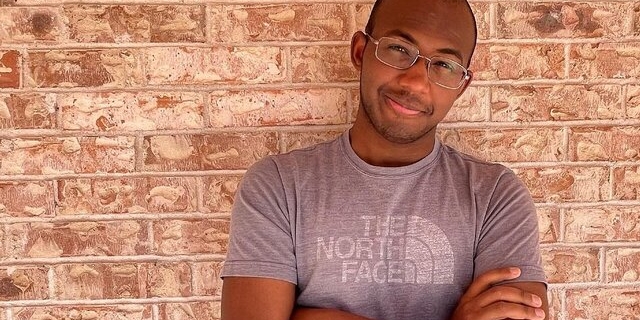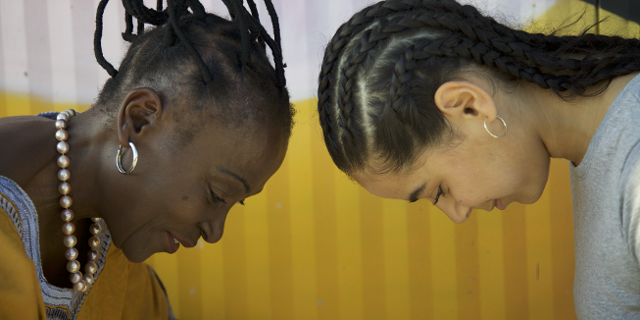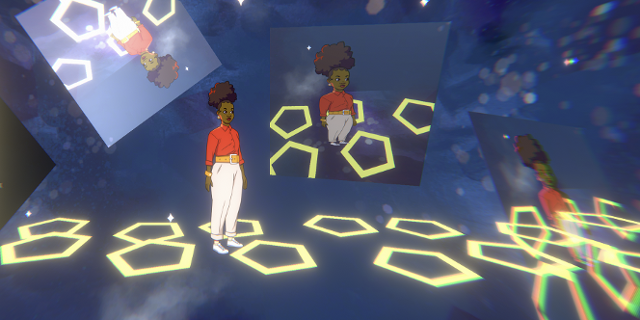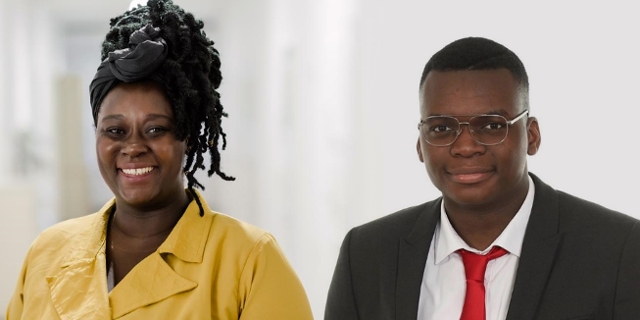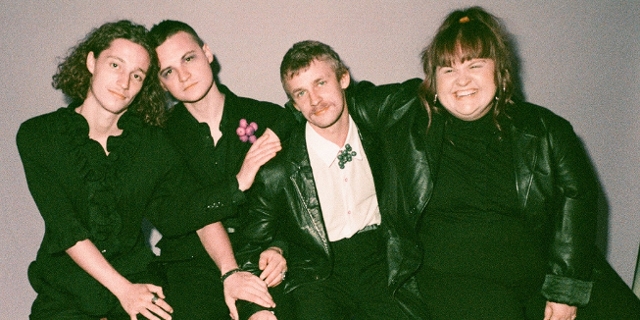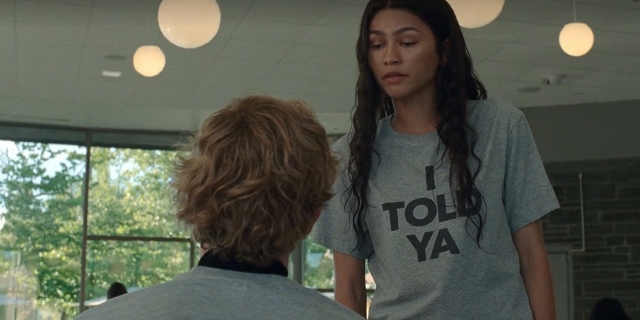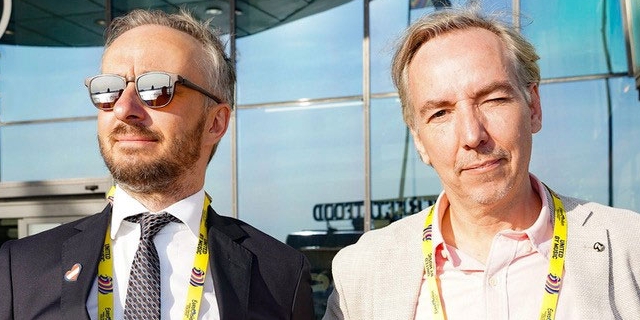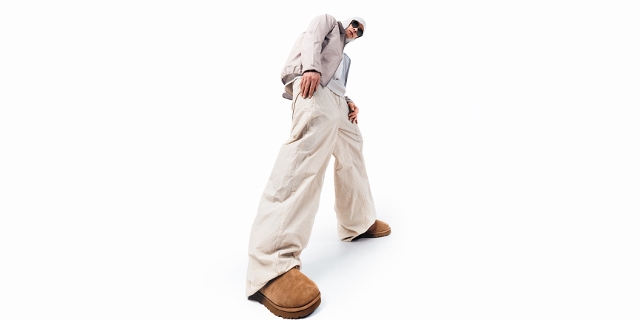„Edelweiss“: ein kritischer Liebesbrief an Österreich
Von Aischa Sane
Im Film „Edelweiss“ sprechen die Protagonist*innen über Fluchterfahrungen, antimuslimischen Rassismus in Österreich, Stereotype, Safer Spaces und Alltagsrassismus. Und über die komplizierte individuelle Beziehung zu Österreich. Darüber, wie schwer es ist, ein Heimatgefühl zu entwickeln, wenn die eigene Daseinsberechtigung aufgrund äußerlicher Merkmale in Frage gestellt wird.
Die Regisseurin Anna Gaberscik ist eine österreichisch-US-amerikanische Anti-Rassismus-Trainerin, Aktivistin, Autorin und Performerin. Anna ist die Gründerin des Projekts „Through Our Eyes“. Es ist ein interdisziplinäres Projekt, das sich mit Antirassismus, Intersektionalität und Empowerment in verschiedenen kreativen Formen auseinandersetzt.
Regisseurin Anna Gaberscik, Produzentin Stella Radovan und Kameramann Reza Majdodin waren bei uns im FM4 Studio zu Gast, um über den Film und dessen gesellschaftspolitische Hintergründe zu sprechen.
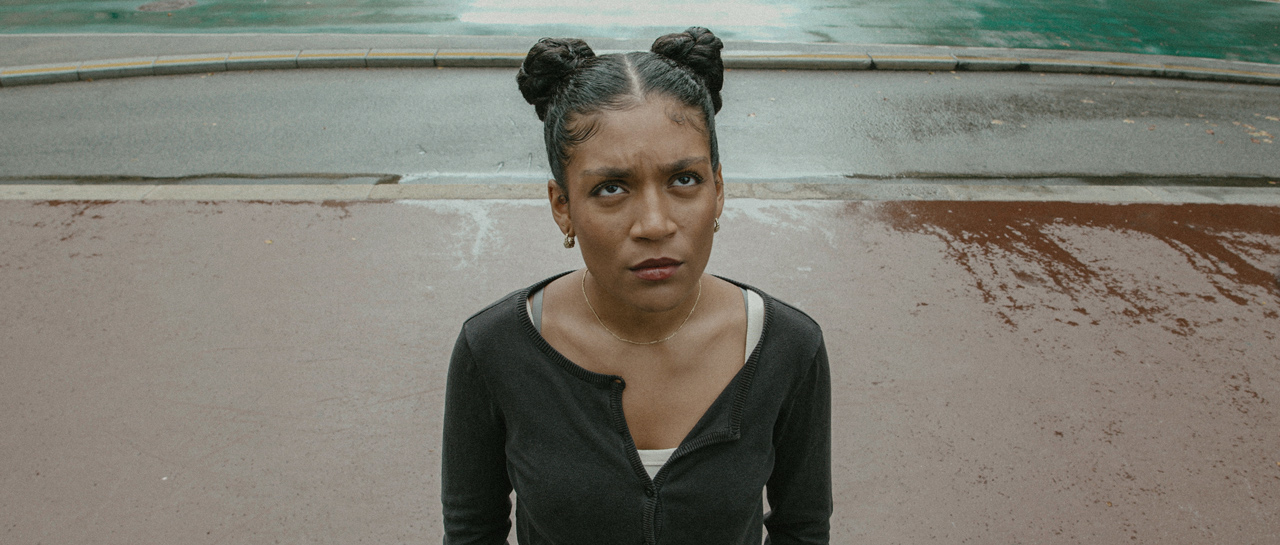
Rezzarte
Anna Gaberscik
FM4: In eurem Film kommen Schwarze Menschen und People of Colour zu Wort, die in Österreich leben oder aufgewachsen sind. Sie schildern, inwiefern Österreich für sie eine Heimat sein kann oder aufgrund von Diskriminierungserfahrungen eben nicht. Wie kam dir die Idee zu diesem kritischen Liebesbrief an Österreich, Anna?
Anna Gaberscik: Well, the idea came to me mostly based on my experiences in Austria. Living here as a person of color is the main source of inspiration. The movie is a collaboration between my „Through Our Eyes“ Project and the „Triangle Studio“, a photography and video studio. We came together specifically on the inspiration and idea of creative producer Stella Radovan. We wanted to do something particularly through the medium of video and film. The idea to do it in this format was born specifically about one and a half years ago. We were aiming to make something about anti-racism, inspired by my workshops and performances. About half a year later, we received a scholarship from „kültüř gemma!“. And finally, that video project graduated into a movie.
FM4: In „Edelweiss“ sind nicht nur Interviews, sondern auch Tanzperformances zu sehen. Warum macht das solch einen großen Teil des Films aus?
Anna Gaberscik: In anti-racism work, there are many ways of communicating messages. Of course, one medium to do this through is an academic, very theoretical approach. And I believe that interviews can often go in that category. But we wanted to make the movie and its messages very accessible, but we understand that language can be a big barrier. The languages that we speak in the team don’t even begin to cover all the languages that are spoken in Austria. We assumed that the interview portions would not always necessarily speak to the people. That could be for language reasons, or it could just not be a particular approach that is accessible to them. Maybe it simply wouldn’t touch their hearts. But we thought that maybe those performance aspects could accomplish that. So, the idea behind mixing the different formats was to try and pick people up at as many points as possible to ensure that the message that we want to communicate gets across somehow.
FM4: „Edelweiss“ ist ein Dokumentarfilm über die Lebensrealitäten Schwarzer Menschen und People of Colour in Österreich. Und der Titel ist spannend, warum ist der Film nach der Alpenblume benannt?
Anna Gaberscik: Well, the inspiration was my childhood love of the movie „The Sound of Music.“ It’s actually a very popular movie in the United States, but not many people know it here. It’s just this super corny Hollywood movie and I loved it growing up! Also, I really liked the song „Edelweiss“. Our film is inspired by the song in the movie as well as the fact that „Edelweiss“ is Austria’s national flower and that it has this very specific cultural significance. The word „Edelweiss“ is just perfect as the title of the movie because we wanted to empower specifically People of Colour in Austria. And of course, in order to do that, we have to deconstruct whiteness in Austria. Edelweiss.
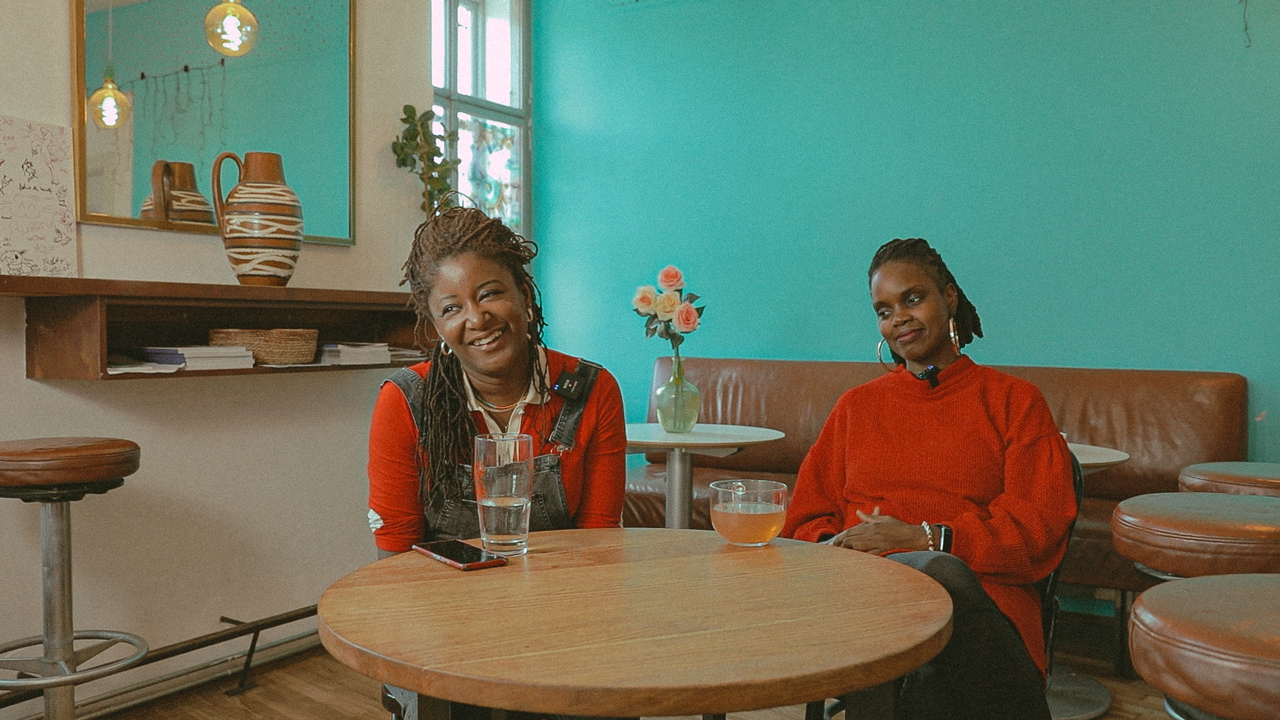
Rezzarte
JG Danso und Denise Van De Cruz
FM4: In „Edelweiss“ geht es um die Beziehung von Menschen mit unterschiedlichster Migrationsgeschichte zu Österreich. Gibt es eine Aussage oder eine vereinende Erfahrung, die euch bei in den vielen Interviews aufgefallen ist?
Anna Gaberscik: One thing came up a lot in the interviews and the performances, in the process of making the film. It is this collective frustration towards the fact that People of Colour are not accepted as a part of the fabric of Austrian society. This frustration was shared between people who have grown up here, but also with people who have come here recently. There has been this collective sentiment of: we contribute, we are here, we exist. Why isn’t that enough? Why isn’t it enough for us to just be here and be ourselves and exist in this space? Why are we still not accepted as a part of this society? However, I also want to specifically note that this point of contribution, of working and giving shouldn’t have to be a requirement in order to belong. Existing is just enough.
FM4: Was würdest du in einen Brief an Österreich schreiben?
Anna Gaberscik: Well, the statement that comes to mind is quite a strong one, but I believe it deeply in my heart: it’s that Austria as we know and many of us love it today, however complicated that relationship may be, wouldn’t be what it is without People of Colour and without people who have come here and made it their own.
I think this idea of purity, like Austria being very homogenous and very white, is something that this country often prides itself on. But that’s not actually what makes Austria great or good. It’s actually all the people who have come here, who have mixed with Austrian culture and who have created a new definition of it. So, in my letter I wouldn’t want to say that you would be nothing without us, but I do want to say that you wouldn’t be as great without us.

Rezzarte
Negin Rezaie
FM4: Und was ist euer Plan für „Edelweiss“? Wer soll diesen Film sehen, und möchtet ihr das Projekt weiterführen?
Anna Gaberscik: Yes, definitely. One of our biggest plans is to show the movie outside of Vienna, which means in the provinces in Austria. My childhood was not spent in Vienna, it was spent in Styria. So I’m very aware of the conversations that are not being had in the countryside. The next step would be to spread Edelweiss internationally. I think it would be a very good push for Austria if people abroad saw what was going on here. Austria has an amazing reputation culturally, and I think that’s great. But there’s a lot that still needs to be done. And I think that if we build pressure not only within Austria, but also beyond, there can happen more. I think having such a good international reputation also accounts for how stagnant things are in the area of anti-racism. So, we hope to show it more within Austria, hopefully also within schools as a tool for education. But also, to spread it more internationally, to let people know how we’re really doing.
Zu sehen gibt es „Edelweiss“ das nächste Mal am 3. März im Dschungel Wien beim Skin Festival.
Publiziert am 21.02.2023







